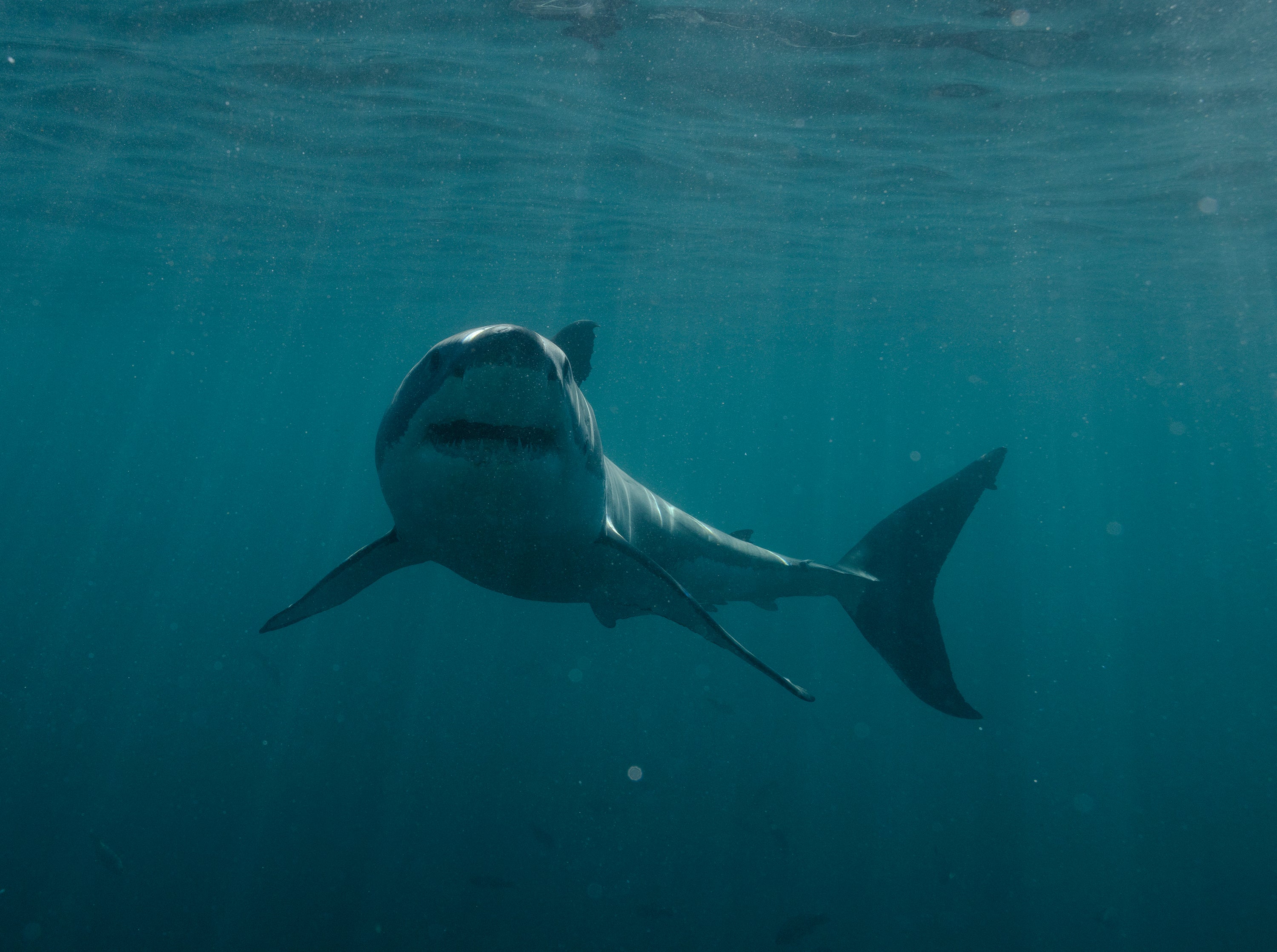Can sharks help predict hurricanes?
Marine animals are often feared but could provide vital early warnings of coming storms to save lives
As the climate crisis continues to deliver more and more extreme weather events and intensify hurricane season in North America, scientists are looking at new ways to gather information from the natural world to provide advanced warning of coming storms and avert disaster – and some believe sharks could play a key role.
Currently, meteorologists grounded on terra firma can predict a hurricane’s path up to five days in advance using costly satellite technology and atmospheric equipment.
But, by closely monitoring the behaviour of sharks, which can sense the shifts in barometric pressure that indicate a storm approaching through the pores in their snouts, even from as far away as 100 miles, that notice period could potentially be extended to as much as two weeks in advance, according to researchers.
Observing sharks suddenly darting off in search of deeper waters, for instance, might provide a vital early indication that a hurricane is brewing, giving the occupants of coastal towns extra time to batten down the hatches and brace themselves or flee the area in good time.
A recent academic study by the University of Delaware, Stanford University and NOAA Fisheries advocated the use of marine animals as “ocean observing platforms” (or OOPs) by attaching sensors to them to measure temperature and conductivity, a practice that could “significantly improve existing oceanographic models and data resources”.
The authors acknowledged that the practice has been tried before with creatures that regularly surface for air like seals, whales and sea turtles but suggested sharks could be more effective in the role, not least because they tend to “occupy habitats across the globe, in particular habitats that are coincident with hurricanes”.
They continued: “One region where sharks have enormous untapped potential to serve as OOPs and directly benefit coastal communities is the Mid-Atlantic Bight (MAB).
“Using pelagic shark species that occur in the MAB to generate high-quality water column conductivity-temperature-depth profiles has the potential to greatly improve regional oceanographic and hurricane models by providing real-time oceanographic data.”
A pilot scheme is already underway involving a dozen sharks equipped with satellite tags to trace their movement, according to Florida Today, but thousands more might realistically be needed for effective mapping and there is of course no means of controlling where the sharks are in the ocean, so they could be too far out of range at the pivotal moment to sound the alarm.
“We have this kind of new capacity to put these smaller and smaller sensors, on a different suite of animals, including sharks, and then the data can get transmitted directly into the sort of oceanographic data pipeline and be available in the same places as the all those traditional datasets from from buoys and gliders,” Tobey Curtis, a fishery management specialist for NOAA Fisheries in Gloucester, Massachusetts, told the newspaper.
“Animals that are instrumented with these kind of fancy new satellite tags. They have the capability to capture these oceanographic data that can inform hurricane models, which is really cool. And some of the benefit is that they can be much less expensive than sending out an oceanographic survey vessel.”
Man-made devices like glider drones, often used to measure ocean heat, can struggle with currents, whereas sharks can swim as fast as 45mph and to much greater depths, making them much hardier and better suited to the task.

“They can move to places or sample parts of the ocean that are tough to get to by ship, or buoy or glider or these other typical traditional oceanographic data sources,” Mr Curtis said.
One potential complicating factor is that the reactions of sharks to sudden changes in atmospheric pressure appear to differ from one species to another.
In 2016, for instance, researchers from the University of Miami noted large tiger sharks off the Bahamas responding to the Category 5 Hurricane Matthew by simply staying put in shallow inshore waters, clearly feeling secure in their position and enjoying feeding off the smaller creatures washed into their path by the waves.
Conversely, researchers from the same institution noted smaller species like bull sharks, hammerhead sharks and nurse sharks in Florida’s Biscayne Bay scrambling for deeper, calmer waters in 2017 as Hurricane Irma zeroed in, preferring to swim out of the path of the storm raging overhead.
The potential of the project is exciting nonetheless and humanity could clearly do a great deal worse than look to sharks for inspiration, given that they are one of Earth’s greatest survivor species.
Join our commenting forum
Join thought-provoking conversations, follow other Independent readers and see their replies
Comments


Bookmark popover
Removed from bookmarks